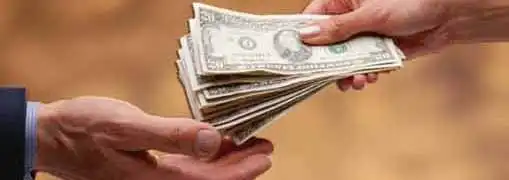Small Business Accounting
Accepting Cash and Checks
Does your small business accept payments via cash and checks? If so, establishing payment and collection policies, and understanding the laws that regulate them, are indispensable steps toward protecting the financial health of your business.
Should your business accept personal checks or debit cards? What kind of identification can you ask customers to show when making purchases? How does the law regulate the acceptance of large sums of cash?
Accepting Large Sums of Cash
While most business owners love the idea of receiving $10,000 in cash, it tends to make the IRS nervous. To help ease their jitters, the IRS requires that merchants use Form 8300 for such large transactions, which includes the name, address and social security number of the buyer. The same rule applies to cash equivalents such as traveler's checks, bank drafts, cashier's checks and money orders.
Asking for ID for Check Transactions
Some states have laws regulating the kinds of identification customers may be asked to show when writing checks. Requiring a photo ID such as a driver's license is generally legal, but requiring customers to show a credit card as a condition for writing a check is often forbidden.
Check Policies
Creating and adhering to a check policy may help avert legal hassles. Common policies require that checks be written and signed in the presence of the seller, drawn from local banks, not written for more than the purchase price, and various other stipulations.
Cashing Old Checks
The Uniform Commercial Code, which governings banking practices in most states, declares that banks may refuse to honor checks dated back six months or more. It's best to cash checks as quickly as possible.
Bounced Checks
What do you do if a check is returned because a customer's account is closed, or has insufficient funds to pay for the transaction? Calling the customer is a first step, though several states have laws specifying what kinds of threats can be made, the hours calls can be made to debtors and other methods of phone-based collection. Writing a collection letter, contacting the bank, going to small claims court and using a collection agency are all common secondary steps.
Dissatisfied Customers
Occasionally, customers will stop payments on checks if they believe the products or services bought did not live up to expectations. If true, customers are entitled to a refund or a reduction of the amount owed.
Share this article
Additional Resources for Entrepreneurs



Conversation Board
We greatly appreciate any advice you can provide on this topic. Please contribute your insights on this topic so others can benefit.